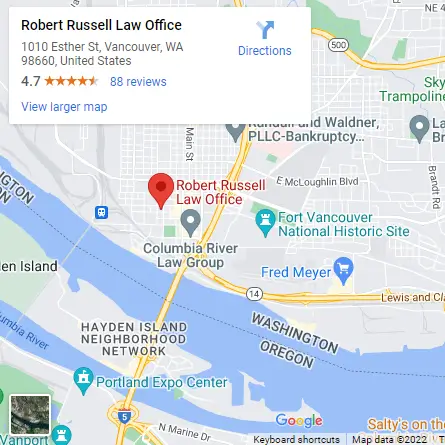What happens to your hard-earned properties and assets after you die? It is important to make sure that all your finances, assets, bank accounts, life insurance policy benefits, real estate properties, retirement accounts, and other investments will be left in good hands after you pass away. All of our valued assets can be protected by doing estate planning. It also covers health care concerns and your children’s welfare.
If you want to choose who will inherit your possessions and valuables, you need to prepare an estate plan. Estate planning will determine how your assets will be preserved, managed, and distributed after your sudden death or if you become incapacitated. It minimizes the chances of family strife and legal court battles involving inheritance issues.
You may wonder what estate planning means and how do you make one? Here are some of the most important estate planning issues to consider:
- Write a Will
- Consider a Trust
- Give Healthcare Directives
- Make a Financial Power of Attorney
- Protect Young Children
- Name Your Beneficiaries
- Consider Life Insurance
- Cover Funeral and Memorial Expenses
- Protect Your Business
- Store Your Important Documents
Write a Will
 A will is a legal document that expresses your wishes regarding the distribution of your assets to your chosen heirs and the appointment of a legal guardian to care for your children after you die. Writing a will is important, not just for high-net-worth and wealthy people, but for everyone. It is considered an important component of estate planning. As the testator or author of will, you should clearly state your plans on how and what to distribute to your chosen beneficiaries and heirs. You have to make decisions on how you plan on dispersing your hard-earned possessions to your family. It is advisable to consult a credible Vancouver estate planning attorney to help you write your will according to the estate laws.
A will is a legal document that expresses your wishes regarding the distribution of your assets to your chosen heirs and the appointment of a legal guardian to care for your children after you die. Writing a will is important, not just for high-net-worth and wealthy people, but for everyone. It is considered an important component of estate planning. As the testator or author of will, you should clearly state your plans on how and what to distribute to your chosen beneficiaries and heirs. You have to make decisions on how you plan on dispersing your hard-earned possessions to your family. It is advisable to consult a credible Vancouver estate planning attorney to help you write your will according to the estate laws.
If you die without writing a will (intestate), all your assets, bank accounts, property, and guardianship of your minor children will be handled and distributed according to the intestacy laws in your state. It can cause financial hardship and long court battles for your loved ones.
A will can be used as an effective tool for estate transfer and other legal proceedings after your death. However, anything that is left by a will shall go through probate court. A probate court is the judicial system section responsible for settling wills, trusts, guardianships, and conservatorships.
Consider a Trust
Aside from creating a will, another method of estate planning is considering a trust. It involves the process of giving authority to another party to handle your assets in favor of your beneficiaries. A trust can be made depending on its function and can be classified into a testamentary and living trust. A testamentary trust can be created using a will. A trustee will be named in the document to control the distribution of assets according to the trustor’s wishes, following the trust document and its directives.
Another option is to hold your assets in a revocable living trust. Unlike a will, this will allow you to avoid probate court. Your property can be passed on directly to your named beneficiaries. It is called a living trust because it is created while the trustor is still alive. It is considered revocable, as it can be changed or modified.
Give Healthcare Directives
It is important to write your requests for your health care. You can use it during the times that you will no longer be able to decide for yourself. A health care directive includes a power of attorney and a health care declaration. It allows you to authorize a person to make decisions on your behalf.
Make a Financial Power of Attorney
You can authorize your trusted person (attorney-in-fact or agent) to handle your assets and finances by having a durable power of attorney. You can use it if you become disabled, incapacitated, or unable to manage your finances.
Protect Young Children
As a parent, you have to prepare your family for any inevitable circumstances that might happen in the future. In case of your sudden death, you need to appoint a guardian who will take care of your minor children including their finances and properties that they will inherit from you. Without a will that names your designated guardian, the court will decide on who will raise your children.
Name Your Beneficiaries
When you name the beneficiaries of your assets, finances, bonds, stocks, retirement plans, and bank accounts, it will automatically be considered as “payable on death” to your beneficiaries. Naming beneficiaries means that probate, attorneys’ fees, and other costs associated with settling estates are avoided. Reducing taxes on what you leave behind to your heirs is a common estate planning goal. A qualified Vancouver estate planning attorney can help you designate beneficiaries, find ways to reduce estate taxes and avoid the probate court process.
Consider Life Insurance
Your life insurance can be passed directly to your named beneficiaries. It is important to maintain and ensure that your insurance policy beneficiaries are up-to-date and listed correctly. Life insurance is important, as it protects your family and lets you leave them a non-taxable amount at the time of your death.
Cover Funeral and Memorial Expenses
Aside from the conventional funeral prepayment plan, most people nowadays prefer to set up a payable-on-death (POD) account. You can make this arrangement with financial institutions to designate beneficiaries to your bank accounts or certificates of deposit. Your surviving family members can use this fund to pay for your funeral expenses.
Protect Your Business
If you own a business solely, you must prepare a succession plan. If you own a business with other people, you must create a buyout agreement.
Store Your Important Documents
Your executor or attorney-in-fact might need to access the following documents:
- Wills and trusts
- Insurance policies
- Real estate deeds
- Certificates for stocks, annuities, and bonds
- Bank accounts, safe deposit boxes, and mutual funds information
- Retirement plans
- Information on debts (credit cards, utilities, unpaid taxes, mortgages, and loans)
- Funeral prepayment plans details
The Role of an Estate Planning Lawyer
No one knows what will happen in the future, therefore, it is important to plan our life ahead of time. It is mentally and emotionally stressful to imagine your death. However, creating a will ahead of time will give you peace of mind knowing that you will be able to equally distribute your assets to your family. Without a plan in place, there could be a long-lasting impact on your loved ones. Proper estate planning is the key to ensure that everything that you will leave behind when you die will be managed and handled accordingly. For legal help, do not hesitate to schedule a consultation with our experienced Vancouver estate planning lawyers at Robert Russell Law Office. We will help you know and understand the state and federal laws that can affect how your estate will be inventoried, valued, distributed, and taxed after your death.







